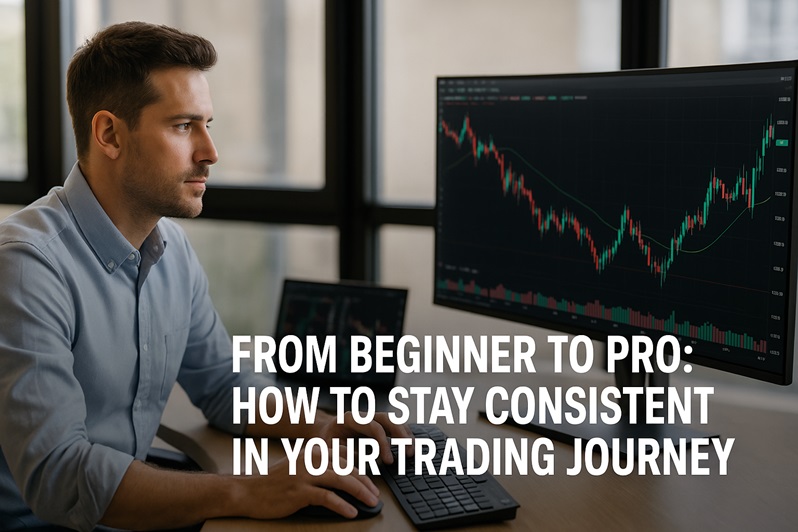
Consistency is the cornerstone of long-term success in Forex trading. While many traders start their journey with ambition and enthusiasm, only a small percentage remain profitable over time. The difference often lies not in talent, but in discipline, mindset, and routine. This guide explores the key elements that help transform a beginner into a consistent and professional trader.
Developing a Trading Routine That Works
A solid routine brings structure and clarity to your trading. Professionals don’t just rely on gut feeling—they prepare. Each trading day starts with a review of the economic calendar, market news, and a scan of key pairs for setups. Pre-market analysis helps define trade plans in advance, reducing impulsive decisions.
A routine should also include time for reflection. Keeping a detailed trading journal provides invaluable insights into both strategy and mindset. Reviewing your trades regularly uncovers patterns, strengths, and areas needing improvement. This consistent feedback loop supports continuous growth.
Mastering Your Mindset and Emotions
Emotions are the biggest threat to trading consistency. Fear, greed, and impatience often cause traders to deviate from their plan. Developing emotional discipline begins with self-awareness. Recognize the feelings that arise before and after trades, and implement steps to regulate them.
One effective technique is visualization. Before the session begins, imagine different trading scenarios—wins, losses, break-evens—and how you will respond. This mental rehearsal builds resilience. Additionally, techniques like meditation, focused breathing, or stepping away from the screen can help reset your state and maintain control.
Building and Refining a Strategy
A consistent trader doesn’t jump between strategies. Instead, they choose a core method and refine it over time. This could be trend-following, breakout trading, or mean-reversion—what matters is that it fits the trader’s personality and schedule.
Each strategy should have clear entry and exit criteria, risk parameters, and trade management rules. Backtesting builds confidence and helps eliminate second-guessing. Once live, adapting and evolving the strategy without overhauling it is the key to long-term success.
The Power of Long-Term Thinking
Consistency is a long-term game. Instead of focusing on daily profits or short-term performance, successful traders measure progress in months and quarters. They understand that drawdowns are part of the process and that capital preservation is just as important as growth.
Setting realistic expectations and embracing the journey keeps motivation high. Success comes from dozens, even hundreds, of well-executed trades—not a single lucky one. With patience, structure, and accountability, the transition from beginner to pro becomes not only possible, but sustainable.
Conclusion
Becoming a consistent trader isn’t about finding the perfect indicator or secret strategy—it’s about building habits that support clarity, discipline, and confidence. Whether you’re just starting or seeking to level up, commit to your routine, manage your mindset, and think in years, not days. Consistency isn’t a destination; it’s a practice. Start building it today.
FAQs
How long does it take to become a consistent trader?
It varies, but most traders see real consistency after 6 to 12 months of focused practice.
Do I need a trading coach to stay consistent?
Not necessarily, but mentorship and accountability can accelerate progress and reduce errors.
Can I trade consistently while working a full-time job?
Yes. Many strategies, like swing trading, are designed for part-time traders with limited screen time.
What causes most traders to lose consistency?
Emotional trading, lack of a clear strategy, and not journaling or reviewing past trades.
Is it better to specialize in one trading pair or diversify?
Starting with one or two pairs allows you to build expertise before expanding to others.
